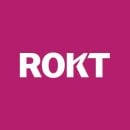Every company that uses technology needs engineers. In the current world, where breakthroughs in machine learning, blockchain and VR are happening every day, having engineers to innovate and perfect technology is even more important. On Built In NYC alone, there are over 3,000 engineering jobs; businesses are clamoring for the best the field has to offer.
But getting an engineering job isn’t just about the company. It’s perhaps more importantly about the engineer. Professionals want to find jobs that suit them, be it through interesting challenges, company culture, benefits or all of the above. If organizations want to keep talent long-term, candidates and companies need to have a symbiotic relationship.
The best way to find out whether a job suits you is to learn from the people who are already in it. To provide that opportunity, Built In NYC sat down with recently hired engineers from 10 local companies. These engineers opened up about why they joined their organization, along with some of the excitements and challenges their positions entail.
What attracted you to apply for a role at Spruce Holdings in the first place?
Initially, what attracted me to Spruce was the tech stack — Kotlin and React — and the fact that the role offers remote positions. However, there are so many companies out there that fit this criteria. So what really drew me in was chatting with Dylan, the technical recruiter. I could tell he was truly invested in getting to know me — not only determining if I could be a fit for Spruce.
Insight into the company culture is what ultimately sealed the deal. Everyone is excited to be a part of something that is growing and evolving along with the company. Everyone is welcoming, kind, sincere and truly on board with the Spruce’s mission.
The interview process was different from other interviews than I’m used to in CS — it’s not your typical “solve this intricate algorithm” prompt. Instead, the questions are strategically geared toward observing and testing your problem-solving skills and analyzing your background in software engineering. The questions allow for a hands-on evaluation of realistic situations that capture the depth of your knowledge. I really appreciated and respected this aspect of the interview experience.
Which skill or experience do you think helped distinguish you during your job search?
I believe that my resume and background show my initiative to work harder than your average student, with several merit recognitions and awards, a 3.97 GPA and multiple relevant software engineering internship experiences. I had a position in software engineering straight out of college and another position showing growth and promotion during my time there.
I may have graduated less than three years ago, but I have been giving it my all and growing from the second I stepped foot on the college campus my freshman year. I wanted to show that I’d demonstrate that same dedication in my role at Spruce.
I could tell he was truly invested in getting to know me — not only determining if I could be a fit for Spruce.”
What do you enjoy most about developing Spruce’s technology, and what do you find most exciting or challenging?
One of the most exciting things about working on Spruce’s technology is that it’s not in its final form yet — we’ve accomplished so much as a team, but we’re just getting started. Spruce’s technology is changing, adapting and morphing along with the growth of the company, which brings exposure to new foundational challenges and tasks that you don’t get to see when working in a fully-established, long-existing company. It’s a very unique opportunity to get to be a part of transitioning the startup processes into long-term processes that will strive and prevail for the future of the company.
Being a part of the engineering team today means being a part of building the architecture and processes that will support and drive Spruce for years to come — not only in the code itself, but in the processes, standards, team structure and organization. It’s arguably one of the most crucial stages in a tech company’s timeline. I’m honored to be taking part in such an important part of Spruce’s chapters, and am incredibly optimistic of all that is to come.

What attracted you to apply for a role at AlphaSights in the first place?
The focus and value they put on technology as the way to drive company growth. Engineers seemed excited about the products and features they were developing, and could see how they were directly impacting users’ day-to-day workflow and the business as a whole.
AlphaSights also has a really strong learning culture. Feedback and collaboration are a big part of the development process, and taking time to learn new skills and step outside of your comfort zone is encouraged in multiple ways such as sandbox days, hackathons, learning subscriptions and educational reimbursements.
Which skill or experience do you think helped distinguish you during your job search?
In terms of hard skills, I believe that experience in modern front-end frameworks such as Vue.js and React were helpful in distinguishing me during the job search since a lot of the work in my current role is focused on the front end. For soft skills, I believe AlphaSights is looking for individuals who show initiative and are eager to learn. Strong communication skills are also important for our culture of collaboration, especially since we are a remote team that spans multiple time zones.
Feedback and collaboration are a big part of the development process.”
What do you enjoy most about developing AlphaSights’ technology, and what do you find most exciting or challenging?
For the product that I am working on, our customers are actually internal users, so it is really exciting to see how they are engaging with our new features and get immediate feedback on how it is helping or hindering their workflow.
One of the main challenges when first joining the team was learning to work with the large legacy code bases and how to integrate newer technologies into them. Less than a year in though, I have seen massive efforts and entire teams dedicated to transitioning these code bases to modern technologies along with product and design changes to improve the user and developer experience.
Overall, it has been a great experience to get the opportunity to work across several different technologies and collaborate with experienced developers on products where we can really see the business impact. While shadowing our users, several of them commented how they don’t know how they would be able to do their job without our platform. It feels great to be able to work on a product that users really value.
What attracted you to apply for a role at your current employer in the first place?
Something I’d been focusing on during my job search was a commitment to a transparent and sustainable workplace. As an organization that has grown organically — not following the more traditional VC investment path — the company has more autonomy to make decisions that favor the company’s long-term goals. As a result, the company is growing at a more sustainable pace and is able to adapt to unexpected events such as the pandemic in a way that doesn’t compromise anyone’s safety or job security.
Muck Rack’s commitment to transparency was also illustrated by the salary-leveling assessment carried out by an external provider, which I consider a crucial element of building an equitable workplace.
Another important aspect for me is the commitment to remote work. I have enjoyed the flexibilities and privileges of remote work for several years now. I’ve learned throughout this time that the support and investment of the company is a foundational element of building a successful remote culture. This includes clear guidance on synchronous and asynchronous communication, access to remote-first tools and investment into people’s personal workplaces. Muck Rack provides all of that, and even more.
Which skill or experience do you think helped distinguish you during your job search?
In a leadership role, the importance shifts away from illustrating your “hard” skills and more onto the alignment of values with the company and the team members. I’ve learned to be very open and honest about what I am looking for in a role, team and company, which allows me to understand if the company is a good fit for me. And it helps the team I’m interviewing with to establish that I meet their expectations and requirements for the role, as well.
I’ve learned over the years that the interview is an opportunity for both sides to develop an understanding what working together would entail and identify areas where we align or misalign. Muck Rack has done a great job at building an interview process that helps both sides to determine that. Each step of the interview process started from a space of comfort and curiosity. Every conversation made me feel appreciated and valued without losing track of the purpose of our time together. It allowed us to connect and have conversations that helped develop a deeper understanding of the humans involved. My story is that the process allowed the team to get a good understanding of the human that I am and what I would add to the team.
What do you enjoy most about developing your company's technology, and what do you find most exciting or challenging?
Muck Rack deals with a large amount of media content on a daily basis. Maintaining the quality of that content and the performance of the software at the same time is a big challenge that shows up in all areas of the engineering team.
The quality of our content is one of the main differentiators for Muck Rack, and growing the database of media content that our users have access to consistently challenges our commitment to quality. The exciting work for me here is that it requires close collaboration with our internal editorial team to meet their need and ensure that they have all the tools they need to be the most effective. At the same time, finding ways to improve our automated processes that assess the quality of content and adapt to the variation across sources.
On a higher level, I am excited to work on a tool that can create more meaningful connections between PR professionals and journalists. It’s my opinion that in today's world of social media, journalists play an important role in upholding the standards of truthful and accurate reporting. Contributing to a product that allows them to do their jobs better and more effectively is exceptionally rewarding to me.
What attracted you to apply for a role at Nomad Health in the first place?
A few years ago, I moved away from my home base of Miami to work on an interesting project in Charlotte. The personal and career growth I experienced there in two and a half years was more than I could ever imagine, but it didn’t come without its own set of challenges.
As a result of Covid-19, I realized I needed to create a comfortable environment for my family and decided to come back home. After getting a taste of social impact work in my previous role, I was inspired to join a company where I could leverage my skills to build things that are good for the people. The talent acquisition team here reached out and introduced me to Nomad Health. I saw all the great things they are working on and upon learning more about the vision, I knew this place was for me. We’re set to make healthcare staffing more accessible so that we can help patients receive better care — it was truly a no-brainer.
Which skill or experience do you think helped distinguish you during your job search?
I started out my career studying architecture, dropped out to join a large marketing company, launched my own software development company and worked with private government contracts. My life experiences have given me perspective, determination and the ability to tackle whatever comes my way from multiple angles. I’ve learned that nothing is as clear as you think it is, and that taking the time to understand the root of any challenge is critical. I also don’t wait around for things to come my way — instead, I actively look for what’s ahead. I get really involved in everything that I do, and although I can roll up my sleeves and get work done, I believe my biggest strength is being able to pull people together to achieve a common goal. Being able to communicate what drives you is critical, and I was able to convey all of this during the hiring process.
I love that if you have an idea for how to improve the product, we are not afraid to make bold decisions to make it happen.”
What do you enjoy most about developing Nomad’s technology, and what do you find most exciting or challenging?
We are very mission-driven and have ambitious but clear goals that are challenging yet achievable. Our primary problem space is building the most enjoyable and effective staffing platform in the healthcare industry. We are transforming how facilities across the country staff their workforce by empowering clinicians to be in control of the opportunities they want to pursue.
When you set out to do something at this scale, a lot of people need to collaborate, and Nomad is the perfect environment for that. Top to bottom, everyone has a seat at the table. Our product and engineering teams are second to none, and growing! We are a team of builders, creators and innovators. I love that if you have an idea for how to improve the product, we are not afraid to make bold decisions to make it happen.
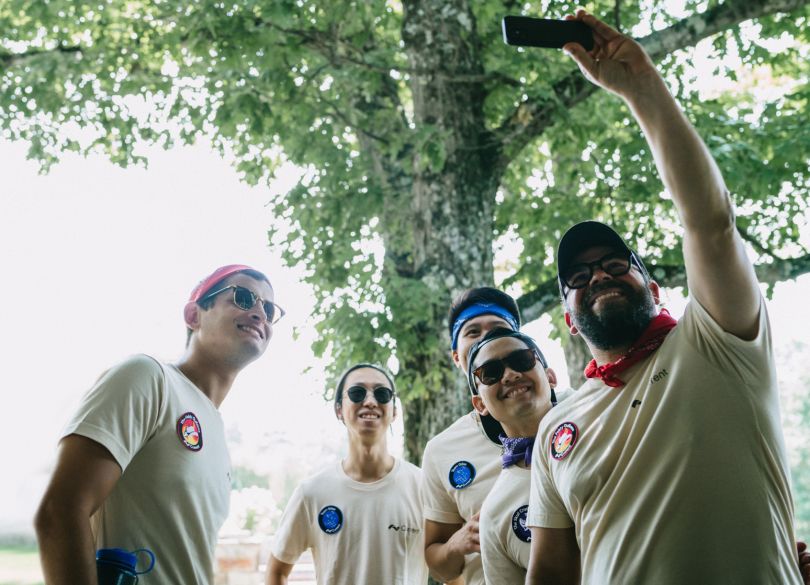
What attracted you to apply for a role at Current in the first place?
At Current, we give individuals a lot of autonomy to decide what’s best to do and then to go do that thing. I think it’s a byproduct of having a small scrappy team with big ambitions. You can’t have too much overhead because you’ll never achieve all those lofty goals. Instead, we need to trust that we’ve hired the right people into the right roles and set them free to bring their unique strengths to the table.
There are examples of this across all functions. In engineering, we tasked a new engineer with rebuilding our entire settlement process — armed with a mentor and some documentation, this engineer successfully rebuilt the entire process from scratch. On the product side, we asked a product manager to find ways we could make the disputes process an even better experience for our members — a few months later, we were able to identify points of friction and drafted a plan that improved every aspect of the experience.
Which skill or experience do you think helped distinguish you during your job search?
I think my values aligning with Current’s helped distinguish me. I came from a fairly orthodox background — I got a bachelor’s degree in computer science and worked as an engineer at two other large companies. But I expressed pretty early on in my job search that I was looking for a smaller, more mission-driven company where I could have more scope and express myself creatively through my work. The leap from cushy big tech with its walled gardens to a startup environment like Current was definitely scary in my personal risk calculus, but I think I got exactly what I was looking for.
The leap from cushy big tech to a startup environment like Current was definitely scary, but I think I got exactly what I was looking for.”
What do you enjoy most about developing Current’s technology, and what do you find most exciting or challenging?
I recently worked on our high-yield interest product that we launched in response to increasing inflation. The product is meant to help our members at a time many need it most by offering a higher annual percentage yield than what you can find from traditional savings accounts. I first heard about this product in my interview process when I spoke to our CTO, VP of product and VP of engineering. At the time, it was just an idea that hadn’t really been thoroughly fleshed out yet, and they wanted to pick my brain to see how my thoughts aligned with their vision. Being able to go from talking about it in my interview process to actually building the entire experience was very fulfilling.
What attracted you to apply for a role at fubo TV in the first place?
When considering any new role, my main goal is to find a place that will value me for me — which includes my past work experience and my unique personality. I aim to find a place that encourages its employees to continue to grow and explore, not stagnate.
I knew someone working at fuboTV, and talked with him about why he works here. The company sounded like it would be a good fit for me and worth pursuing some of the open roles.
Which skill or experience do you think helped distinguish you during your job search?
Having the basic technical skills and familiarity with the frameworks and languages that the role is seeking is the first. Additionally, I have found that many teams find having any form of leadership experience — technology related or otherwise — to be a big bonus.
I have never found that revealing my past on my resume has been a hindrance. I took a roundabout way to get into software development, and I think it’s an important part of what makes me a good developer and helps to give companies a glimpse into who I am beyond just writing software.
I took a roundabout way to get into software development, and I think it’s an important part of what makes me a good developer.”
What do you enjoy most about developing fuboTV’s technology, and what do you find most exciting or challenging?
I love that fuboTV is not afraid to try new things and works to maintain up-to-date technologies, wherever possible. I’ve found that when a team is constantly trying to push the envelope and grow, that it attracts more passionate and driven co-workers. The company is really attempting to change the TV viewing experience — and as a developer, that means I get to help create those new experiences for our subscribers.
The most challenging thing for me when starting any new job is to learn the processes of the new team — ticketing, branching, releasing, bug reporting and so on — but this gets much easier with some time and a lot of questions. Learning the specific tools and libraries that a team uses can be time consuming and potentially challenging, but it’s also one of the draws of being a developer: that opportunity to continuously learn.
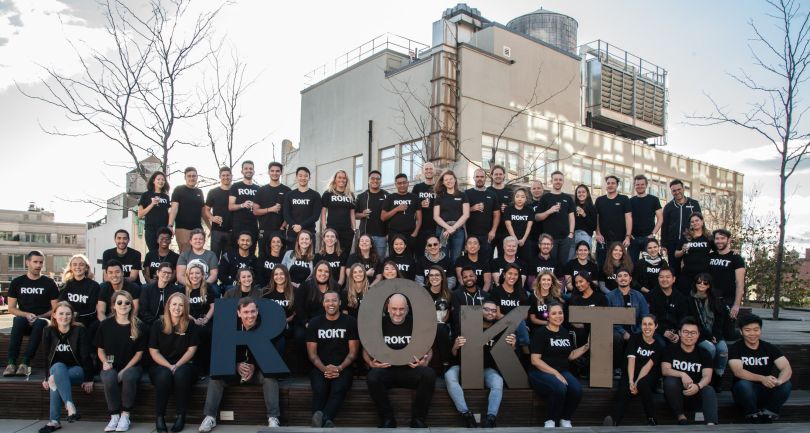
What attracted you to apply for a role at Rokt in the first place?
Rokt is in a unique position to improve the fragmented ecosystem of e-commerce. By utilizing cutting-edge technology in a cloud native infrastructure, we are delivering best-in-class software to improve the value in each transaction and unify the disparate landscape of e-commerce providers. The company is a unicorn in the startup space and offers exciting opportunities as it rapidly expands.
Which skill or experience do you think helped distinguish you during your job search?
I have worked as an individual contributor at several startups who have undergone successful IPOs. I am actively engaged with the engineering community through open source, conferences, hackathons and meetups. I attended an accredited university with a prestigious computer science program. Finally, I have management experience leading large teams to deliver success.
The company is a unicorn in the startup space and offers exciting opportunities as it rapidly expands.”
What do you enjoy most about developing Rokt’s technology, and what do you find most exciting or challenging?
Rokt operates with large data sets in real time. This forces code to be architected in a reliable and performant manner. Doing so surfaces technical challenges, as we must maintain low latency response times and high bandwidth processing rates. This level of sophistication is exciting and challenging.
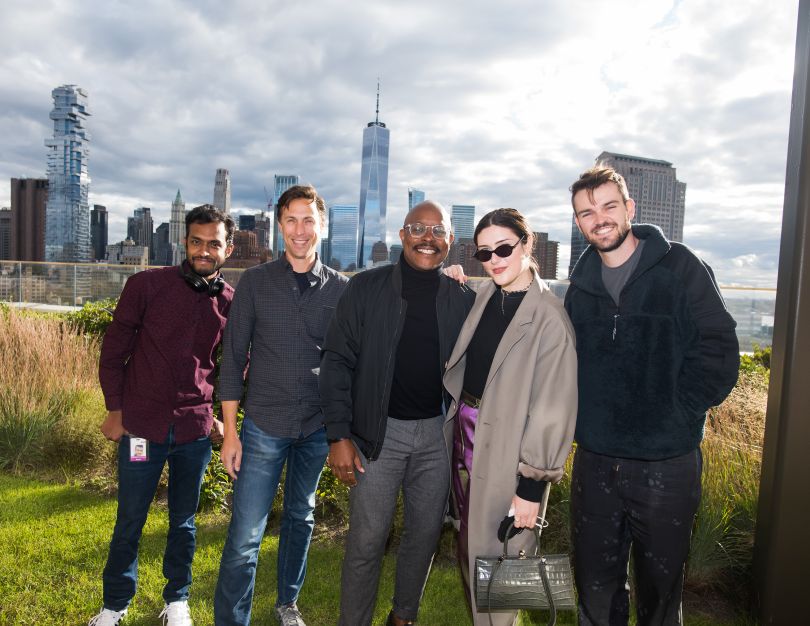
What attracted you to apply for a role at Harrys Grooming in the first place?
I was attracted to Harry’s for three reasons: tech stack, culture and brand.
First, I was excited that the position included working with Gatsby, TypeScript and GraphQL while integrating with a microservices architecture. I had also read a blog post about The Forge, which is Harry’s initiative to share code across all of the Harry’s, Inc. front ends. The engineering work aligned with my interests right off the bat.
Second, I had heard all about the culture and values at Harry’s championing mental health, inclusivity and growth. Perks like a health and wellness stipend and a companywide week off for the end of summer really give you time to recharge and take care of yourself. Harry’s prioritizes DEI and hires genuine people with positive attitudes, which has built a welcoming and inclusive environment for all. Harry’s also lives by their “improve always” value by giving everyone room to grow and supporting continued learning.
Finally, all five of Harry’s brands have a fun voice, great design and are changing the model of the consumer packaged goods industry, which attracted me to the position.
Which skill or experience do you think helped distinguish you during your job search?
I think that my diverse background set me apart from other candidates. My experience as a small business owner has helped me build exceptional soft skills along with an entrepreneurial work ethic. Being a self-starter who can hold themselves accountable and communicate clearly and concisely is very important in the hybrid environment.
Harry’s hires genuine people with positive attitudes, which has built a welcoming and inclusive environment for all.”
What do you enjoy most about developing Harry’s technology, and what do you find most exciting or challenging?
I enjoy the amount of ownership we have over our products. We work in small teams and continually iterate to make the experience better for our customers.
What attracted you to apply for a role at Narmi in the first place?
I was first attracted to Narmi by the prospect of my personal impact. I saw an opportunity to develop something from the ground up and see the direct results of my work. My interest continued to grow when I looked further into the product. Narmi is doing something no one else is, and I got excited by the potential for scalability. In an increasingly digital age, online banking is being used now more than ever before. It’s important to me to ensure financial literacy and inclusion to everyone seeking financial services. I saw Narmi as the best way to do that.
What locked me in was meeting Narmi’s co-founders and getting a clear understanding of their mission and company values. Knowing that Narmi is committed to improving financial wellness made my decision easy. With my background in finance and passion for helping people, I knew Narmi was the right fit.
Which skill or experience do you think helped distinguish you during your job search?
There are a lot of great minds at Narmi and I’m excited to contribute to the innovation. As a candidate, I believe the core strengths that helped me stand out were my systems thinking, thirst for knowledge and experience in highly regulated environments.
Collaboration, innovation and empathy are the key reasons I enjoy and respect the people I get to work with.”
What do you enjoy most about developing Narmi’s technology, and what do you find most exciting or challenging?
The most enjoyable part about working on the Narmi platform is seeing the direct impact of our work at credit unions and banks and the people they serve. The people make every day worth it — both our customers and our colleagues. Collaboration, innovation and empathy set us apart and are the key reasons I enjoy and respect the people I get to work with.
The most exciting part about working at Narmi is seeing all of the potential for growth and opportunities. It’s hard not to get excited coming into a relatively new company and feeling the energy. It can be challenging to continuously innovate, but by listening to our customers we ensure we’re providing what they need. I already believe we have a great product and gaining intimate knowledge of the codebase, product set and feature offerings since I’ve started has reinforced my belief that we will continue to grow and help more people along the way.
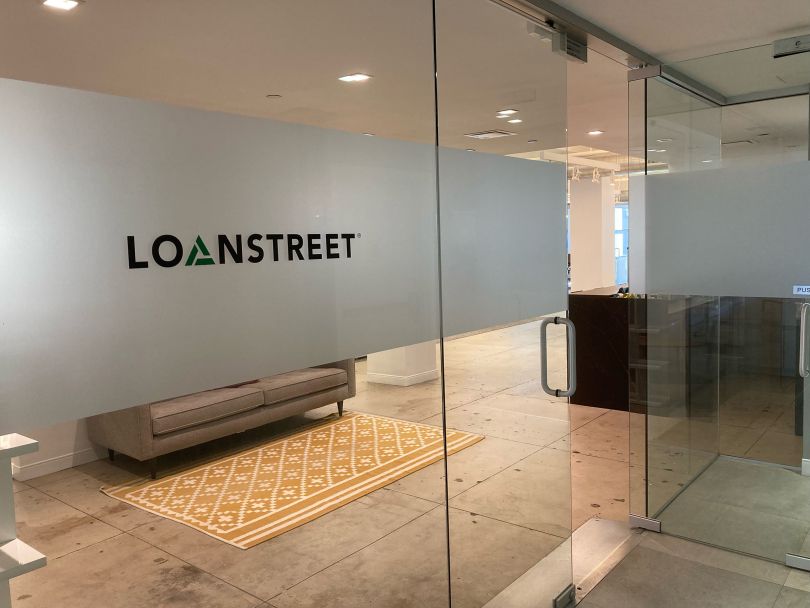
What attracted you to apply for a role at LoanStreet in the first place?
The opportunity! LoanStreet was starting to get some critical mass in creating a secondary market for small loans across credit unions. This was an industry I was familiar with, and I could see the potential that they have to make a big impact for the communities that they serve.
Also, to be able to join at an early stage of a startup that was organized and focused was incredibly appealing. I could immediately join and have an impact due to my background. I am fueled by having ownership over projects and being able to push features and fixes out fast. LoanStreet needed those qualities.
Besides the corporate fit, the people had to fit with my personality. I’ve worked long enough to know that companies will always need workers to output code and drive projects — but would I like the people at LoanStreet and be able to collaborate and contribute in an environment that I wanted? I like to work with nice people who don’t roadblock with their egos — luckily, the LoanStreet managers were smart and confident but genuine and down to earth.
Which skill or experience do you think helped distinguish you during your job search?
I was fortunate to have worked in finance and global credit and structure products prior to LoanStreet, which made my work experience very relevant to LoanStreet’s business. I also have had a very diverse background in working as a consultant for client implementations, Level 1 support, client onboarding, data pipelines and ETL solutions, and managing a satellite office’s infrastructure, application and help desk support teams.
Besides that experience, the greatest skill that I had during the interview was emotional IQ. It is increasingly more important when working in an agile and sprint team that each member has a level of emotional intelligence. This generally makes for better team cohesion and understanding.
While these softer skills were a huge value add, I also had to demonstrate my database skills and some understanding of how web apps are organized. We are a Kotlin-Java-Spring-Exposed-PostgreSQL back end and a Typescript-React front end. I was not familiar with any of the stack, but I did demonstrate that I was self-learning and could pick up these languages.
I am fueled by having ownership over projects and being able to push features and fixes out fast.”
What do you enjoy most about developing LoanStreet’s technology, and what do you find most exciting or challenging?
It’s a fast-paced environment, but we are working to build a maintainable application that can be the foundation of this company for years to come. The Kotlin-Exposed is the most exciting part of the stack for me because I am used to working in C# and SQL Server objects — so using a more modern language is very fulfilling. As for our business problems, the area of finance that we are in can be a different set of challenges that make even the simplest business problem incredibly complex.
The exciting part is working with the tech leadership group that forms how our teams are organized. We are constantly trying to find ways to make our work more enjoyable, more efficient and a place where our devs thrive. Sometimes this is putting some process into place — like building out our CD pipelines — or more tightly integrating the dev teams with our product and design teams. These are the challenges that aren’t technical but can have a great impact on the project, especially in the long run.














